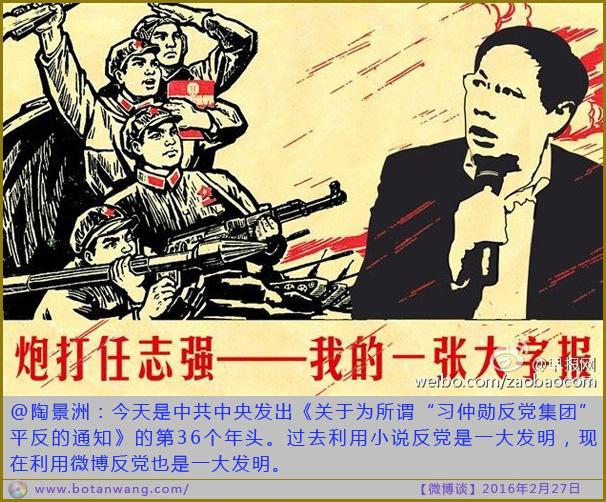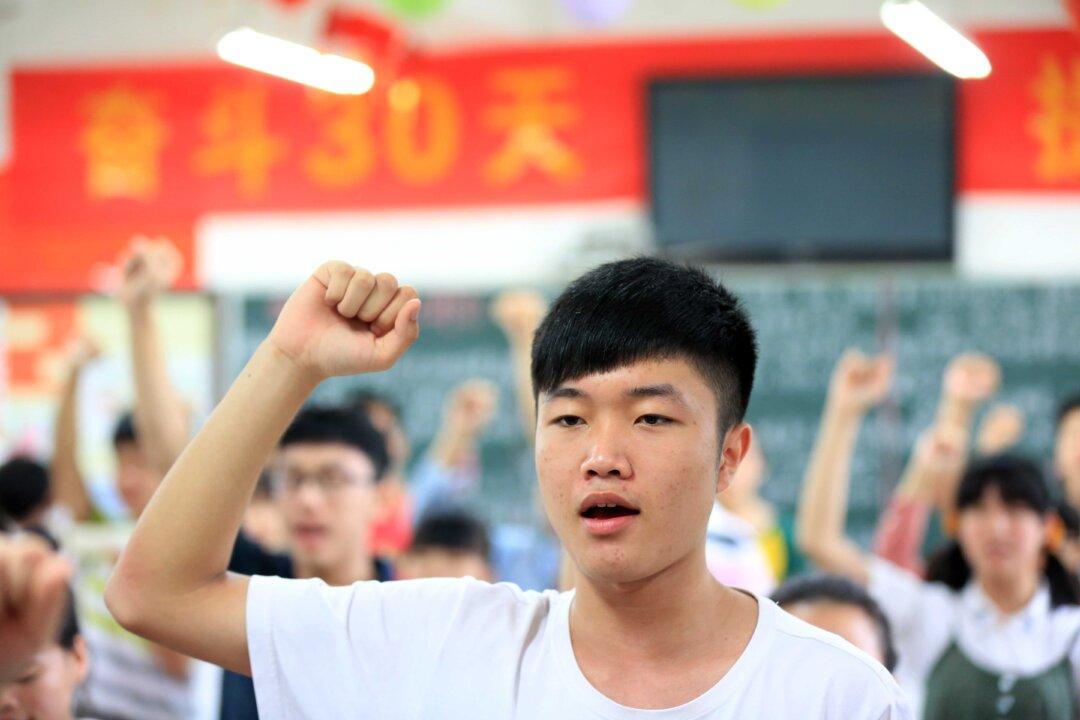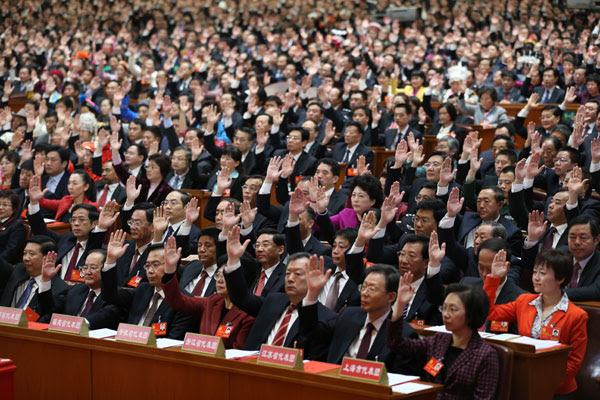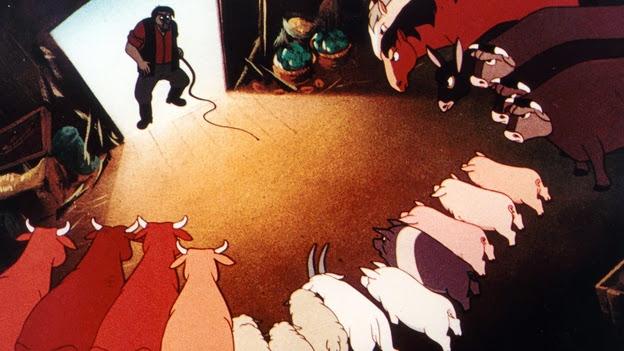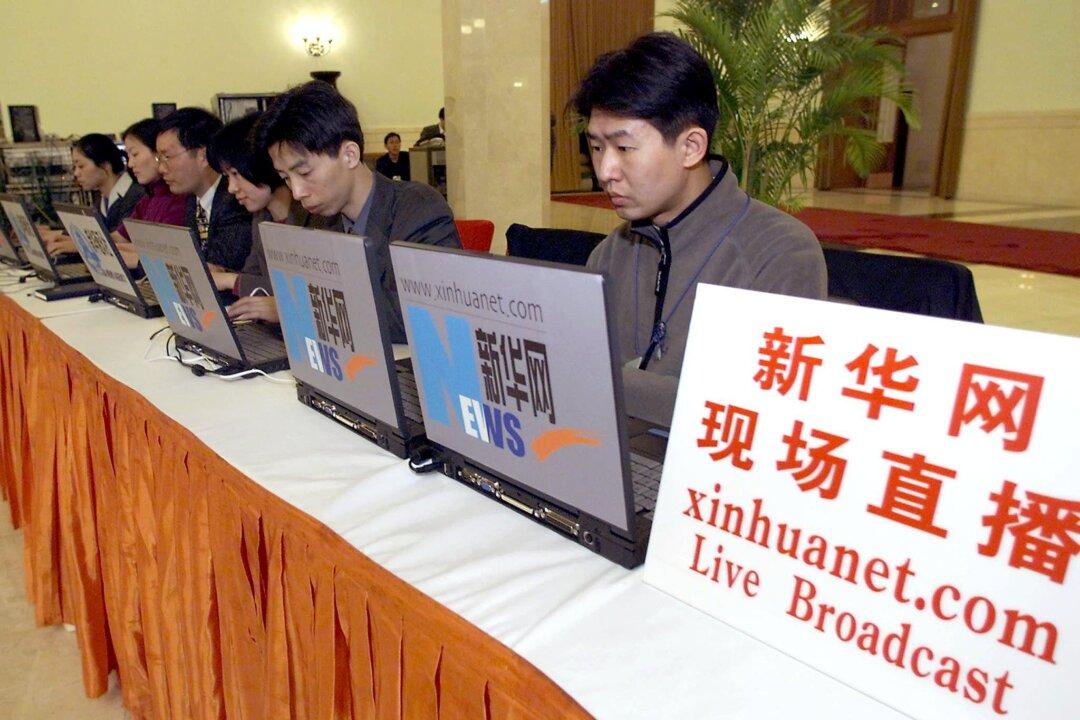This news summary was originally dispatched as part of Epoch Times China email newsletters. Subscribe to the newsletters by filling your email in the “China D-brief” box under this article, or sign up here.
This week, former real estate entrepreneur Ren Zhiqiang, known for his outspoken online presence, was subjected to a deafening assault in the state press after he made one too many “anti-Party” statements. He also had his social media privileges taken away by censors. Elsewhere online, Internet users reflected on China’s economy, how to speak like an official, and the real meaning of China’s “harmonious society.”
Public Enemy of the Week
Ren Zhiqiang, the former real estate mogul famous for his daring criticism of the communist regime online, was officially punished recently. China’s Internet control agency closed Ren’s microblog accounts on Sina Weibo for “carrying illegal information.” The move comes shortly after Ren criticized state-run media for serving the Communist Party and not the people.
As a typical Cultural-Revolution-style move in denouncing a “class enemy,” Party mouthpieces published a number of articles condemning Ren, who is no longer able to defend himself publicly. One article was titled simply: “Ren Zhiqiang is the disgrace of 80 million Party members.” Another article published on official media said: “his Party spirit has been extinguished, and his human side is running amok.”
The renowned Chinese economist He Qinglian remarked on twitter: “The comment ‘Party spirit extinguished, human side running amok’ is a classic statement. It tells everyone the fact that for a person to develop his ‘Party spirit,’ he has to kill his own ‘human side.’ Similarly, for a person to recover his humanity, he has to kill his own ‘Party spirit.’ I wish all Chinese Communist Party members recover their human sides and eliminate their Party spirits.”
A widely spread Weibo post listed the names of corrupt Party leaders and posed the question: “Gu Junshan [a corrupt former military leader] was not called a disgrace. Bo Xilai [a corrupt former Politburo member] was not called a disgrace. Ling Wancheng [a formerly powerful businessman with close official ties] was not called a disgrace. Zhou Yongkang [a former Politburo Standing Committee member] was not called a disgrace. But someone who merely says something you don’t like becomes the disgrace of 80 million Party members? You’ve got quite a sick sensibility.”
Joke of the Week
‘Harmonious’ society
When I was abroad I found society extremely “inharmonious” judging by TV news. But when I turned off the television and walked around, I found it was so “harmonious”!
Back in China, as soon as I went out I found it’s really “inharmonious”. But when I got home and on the television, it was indeed “harmonious” again! —Renren Blog
Explanation: The slogan “construct a harmonious society” is a core motto of the ruling philosophy of Hu Jintao, the previous Communist Party leader. However, Chinese often joke about the slogan by saying “the harmonious society only exists on TV news,” due to the Party’s media control.
Learning Party Language
Recently the Chinese authorities announced that they would begin tearing down fences around so-called “gated communities” in Beijing and other cities. The large neighborhood enclaves—prized because they are only accessible to residents, and are thus considered safer than non-enclosed communities—were said to be an impediment to traffic. Cheng Xinwen, the president of First Civil Tribunal of Supreme People’s Court of China, was recently asked the question “What legal procedure have been taken to solicit public opinions before issuing the policy?” His response, according to a news report:
“To my understanding, your question is about the law of making a law. This is not the topic today, but I am still willing to answer you. We know that in constructing the legal system of socialism with Chinese characteristics, it is the Party that leads our people in lawmaking; it is the Party that leads our people in abiding by the law; it is also the Party that leads the judicial system to execute the law. Therefore, there are specific procedures in making policies by the Party and the nation. This includes asking for suggestions from various social classes and related governmental departments such as People’s courts… [etc.]”
Netizen’s translation: “What’s the point of going on about it? Just say ’the Party does whatever it wants’ and leave it at that!”
Best of Weibo
@Ai Qing Li Shen: “Democracy must be something that is very, very complicated, because it is the only thing from the West that China has failed to copycat.” —Weibo
@c338ki_selina: “A CCTV report says that the U.S. presidential election costs 6 billion dollars. What it doesn’t tell you is the following fact: 6 billion corresponds to $20 per American citizen. This is $5 per citizen per year, as the election is held once every four years. So, every American spends $5 in each presidential election.
In contrast, Chinese officials spent 2 trillion yuan ($310 billion) in ’the three public consumptions,' which is 1,538 yuan ($235) for each of 1.3 billion Chinese citizens. So every Chinese has to hand over $235 each year for Party officials to squander in eating, drinking and traveling!" —Twitter
@Xidan Mo Ke: “Over the past 24 months, China tried all ‘economic elixirs’ that once worked for Uncle Sam: 1) The Keynesian theory of government lifting demand; 2) The ’Marshall Plan‘ of ’the Belt and Road Initiative’; 3) Bill Clinton’s Internet boom; 4) Milton Friedman’s monetarism; 5) Ronald Reagan’s ’supply-side economic policies’. Oh, and I forgot to mention the circuit breaker in the stock market. But anyway, we finally returned to the old way: rely on the real estate market to drive economic growth. But this time, without walls enclosing houses." —Weibo
